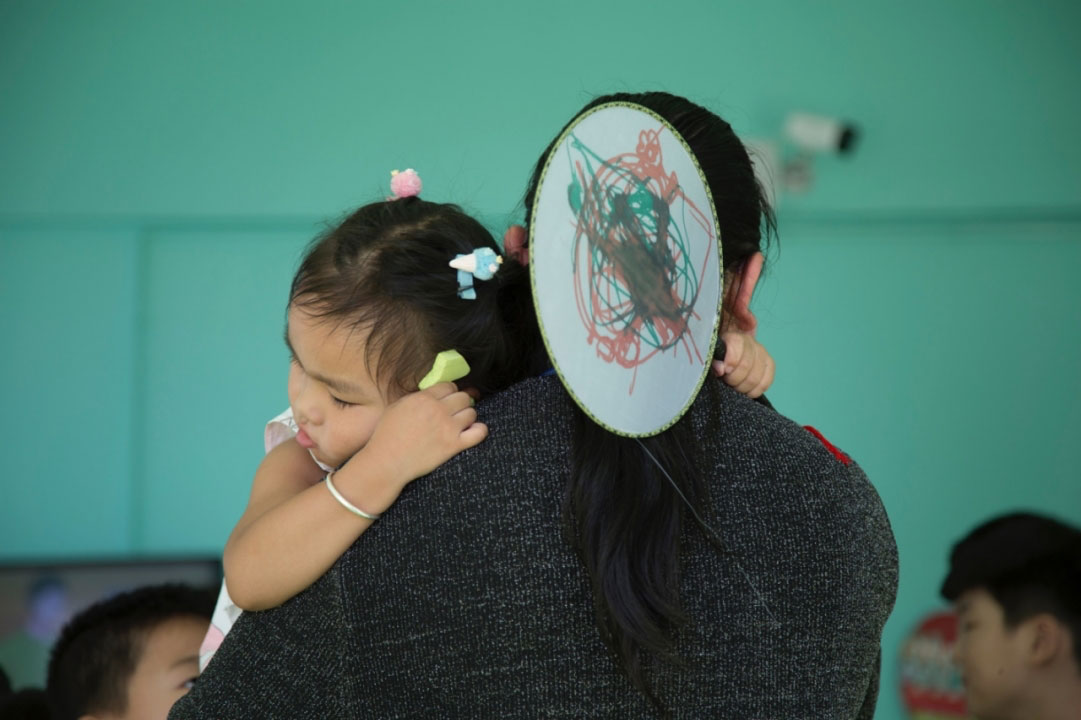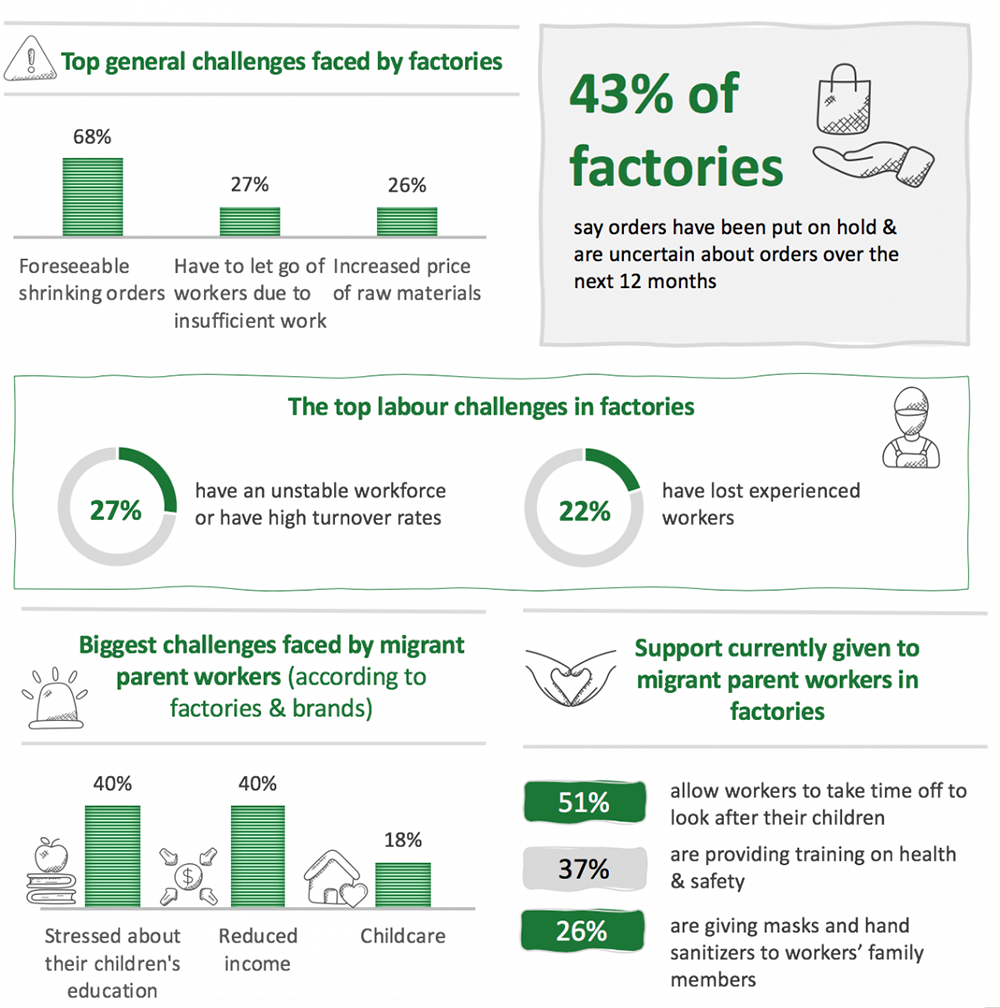

Since the outbreak of COVID-19 in China, migrant parent workers have been faced with new or intensified challenges at work and at home. Through a series of phone interviews with workers and surveys with factories, we have been able to piece together a clearer picture of the impact that COVID-19 has had on them.
One worker we spoke to summed up a situation that many can related to:
“I am from Hubei, and at the beginning the factory did not let people from Hubei back. Now we can go back but there is no work for us. Our factory has no orders from abroad anymore because of the COVID-19 situation. We have no income, and we can hardly make ends meet. I wonder if I can go back to work after May 1st. If I can't resume work, I plan to find a job near my home.”
But in order to understand the roots of their challenges, it’s important to look at the situation in the factories as these are the financial lifeline of the parent workers. Data obtained from a pre and post-online training webinar held on March 31, 2020 for Chinese suppliers about how to support migrant parent workers, reflect the uncertainty that is currently ravaging the manufacturing industry.

Stress and anxiety about online education
Migrant parent workers are extremely vulnerable to the impact of the COVID-19 outbreak as they have no or very weak safety nets, yet immense pressure to provide for their families. Through phone interviews with the workers, we found that parents are highly stressed, anxious and worried, particularly about their children’s education.
“My older son is only in Grade 1 and he finds it difficult to study through online class. Teachers assign homework in the class WeChat group and that’s it. Home-schooling isn’t for young kids like him,” one worker told us.
“Now things start to get out of control. My son behaves badly during the home-schooling. He’d rather get beaten than do his homework. And he never follows his teachers’ instructions. I am driven crazy but cannot do anything. My wife and I need to work in the daytime and we have no time to supervise his study,” said another.
Struggling to ensure basic life necessities
More worrying yet, many are struggling with basic life necessities like ensuring their children get enough nutrition due to lost or reduced income:
“My kid sometimes wants to drink milk before he goes to bed, but he hasn’t had any in the past one or two months because of the virus outbreak. I used to make the food that he likes eating, but now it’s good enough if he just gets food. Now is not the time to think about his needs," a migrant worker who spoke to The Centre via phone interview.
Childcare struggles and unstable workforce
Finally, those workers who have been able to resume work now face yet another predicament: who can look after their kids while they work with schools still closed? Before COVID-19, this was a question that workers mainly worried about over the summer holidays and a growing number of factories were running child friendly spaces to allow their workers’ children to avail of free childcare during the long break. But now the need has changed. Those who have returned to work must either leave their children home alone, bring their children with them to their place of work or quit their job entirely. According to our webinar feedback, the number one labour issue factories are currently facing is an unstable workforce. 23% of factories reported losing experienced workers due to the COVID-19 impact.
“Sometimes my relatives drop by to check on my kid; other than that, my kid is left unattended at home. I prepare lunch for her in the morning, so she only has to heat it up in the microwave at noon. Honestly, I am worried about her safety,” one worker told The Centre during a phone interview.
The need for brands and their suppliers to adapt to the new situation and support migrant parent workers is therefore greater than ever before. It is in the interest of all factories – even those with reduced orders – to retain their most skilled, experienced workers during this time. Supporting migrant parent workers is one of the most effective ways of doing so.
The Centre (formerly CCR CSR) has adapted existing migrant parent support programmes to match the current needs of workers and factories. We believe that in challenging times like these, innovative approaches are needed to ensure maximum relevance and impact. Please contact us for a consultation or to learn more about our services.
By using this website, you agree to our use of cookies. We use cookies to provide you with a great experience and to help our website run effectively.